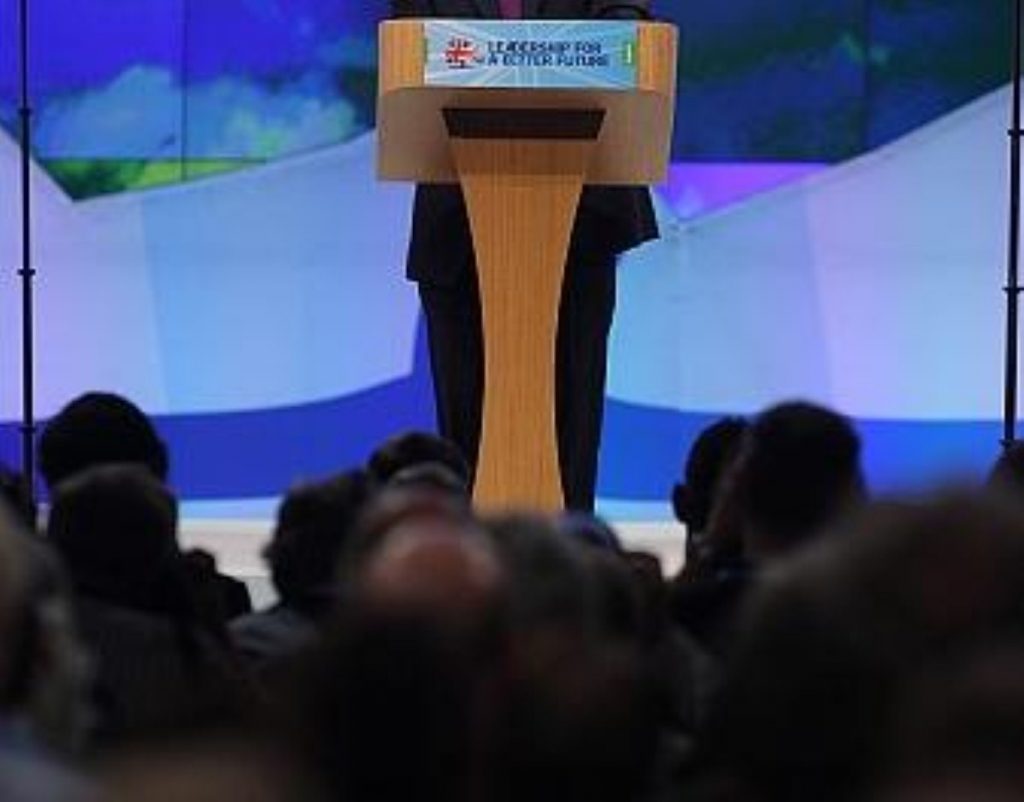Lords reform: Tories are split (at least) four ways
Lords reform isn't one of those issues where you can simply divide MPs up between those for and against.
Instead the Tories are split four ways – but even within these groups there are subdivisions.
Here's my take on the anatomy of the Conservative MPs' Lords reform divide.
Firstly – and it might seem incredible to you – there are those who actually actively support the reforms. They buy the Lib Dem argument that the second chamber should be elected. They want to see this change take place, and are pragmatic when it comes to the many, many concerns there are with the legislation. Life is tough for these Tory MPs, as they know in their hearts that they're up against it.


The second and third groups are those who just don't care. These are the MPs who aren't actually engaging with the pros and cons of the government's proposals. They want Lords reform to fail for reasons other than the actual policy detail of the bill.
Increasing in size after the Jeremy Hunt abstention earlier this month are the anti-Lib Dems group. These MPs are deeply resentful of the Liberal Democrats' insidious influence on government. They are so full of spite at the Lib Dems' performance that they want to punish them – and view killing off Lords reform as the best way to achieve this.
The other 'don't care' group are those who think Lords reform just shouldn't be anywhere near the top of the government's agenda right now. Britain's economy is in crisis. Unemployment remains critical. GDP is shrinking. What will the public make of politicians whose only interest appears to be creating more politicians? It just won't look good… and when you put it like that, they're probably right. These MPs want the coalition to put Lords reform off – which means abandoning it altogether – because it just won't play well politically.
Then you get our final grouping of Tory MPs – those who are against Lords reform on the basis of the proposals themselves. Many are 'small-c' conservative group of MPs who think that the current system works very well, thank you very much. They think shaking up the upper House to make it 80% elected will simply lead to turmoil of kind or another.
Their views on particular nitty-gritty issues vary, however, and so it's wrong to lump them altogether without acknowledging their differences on the biggest issues currently worrying backbenchers.
Number one is the primacy issue. If the Lords becomes 80% elected, will the Commons' undisputed position as the sovereign chamber be threatened? This depends on your point of view. Some Tory opponents of the bill are fairly relaxed, merely fearing there may be some trouble down the line. They acknowledge there may be unforeseen consequences of the changes, but think that future governments should be able to cope with this.
Others are more pessimistic. They think the Lords is going to become much, much more assertive, challenging the government all the time because of its democratic mandate. This would not be healthy, they argue.
The 'ultras' take an even more extreme view. They think that the Lords should be seeking more supremacy – that the bill doesn't go far enough. It's their view that the second chamber should basically be equal with the Commons.
That same three-way split is reflected in the other controversial issue – constituency sizes. Here MPs are especially worried because their own jobs will be affected. They don't want officious senators breathing down their necks or appearing beside them at the village fete. And they don't want peers directing their campaigning resources into the bits of their constituency which are marginal areas for the Commons' general election campaign.
The publication of the Lords reform bill this week could help clarify all of the above. But my suspicion is it will only increase the divisions still further, as the number of issues on which disagreement can grow spirals out of the government's control.
You'll notice there are no numbers attached to any of these groupings. That's because attempting any kind of estimate is more or less futile: some Tories might belong to more than one group, or be extremely flaky one way or the other, or just haven't made their mind up yet. The suggestion in media reports is that a rebellion of around 100 might be plausible. Perhaps it is, but I don't think anyone really knows. As usual, there's everything to play for in the weeks to come.









